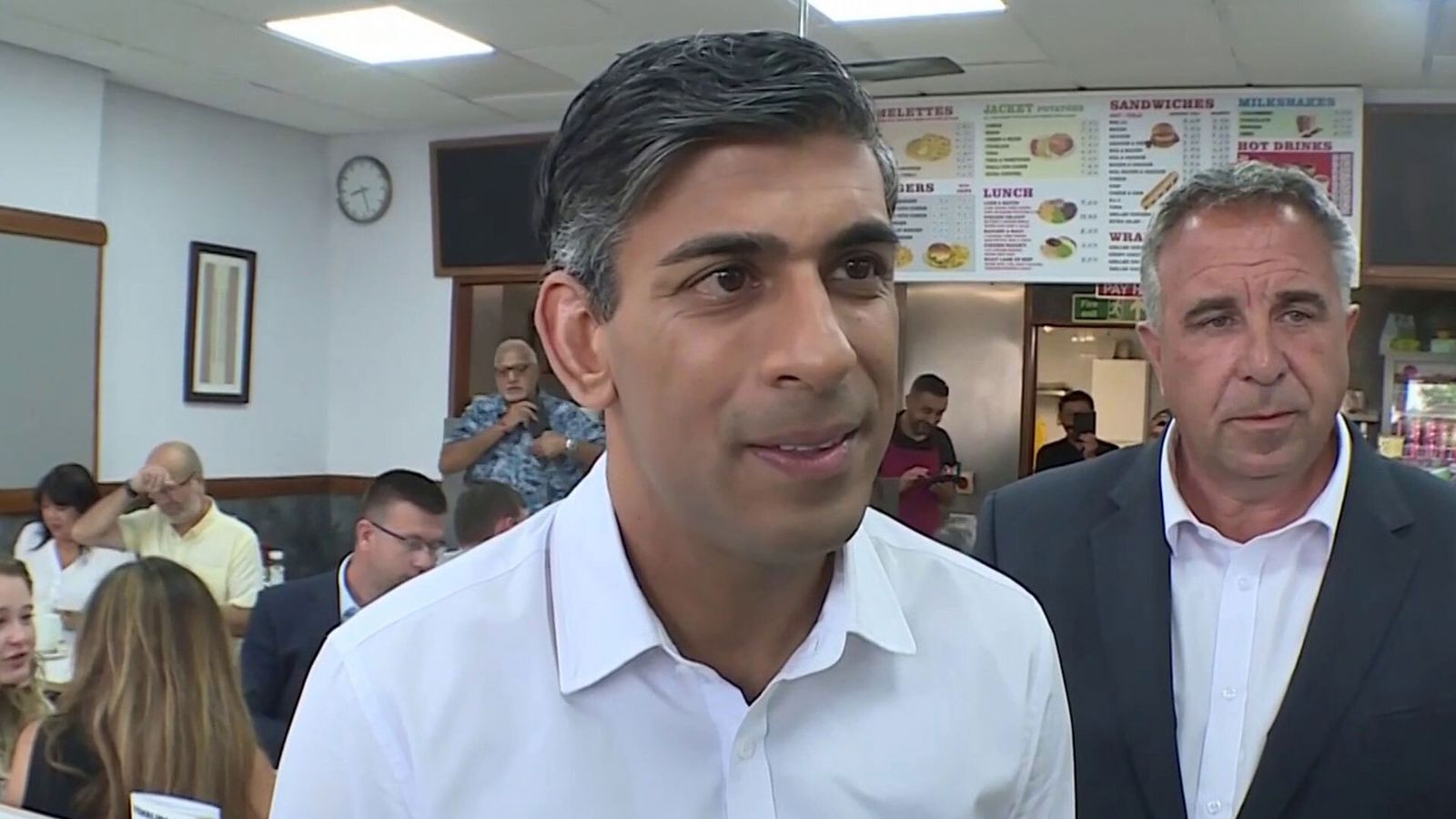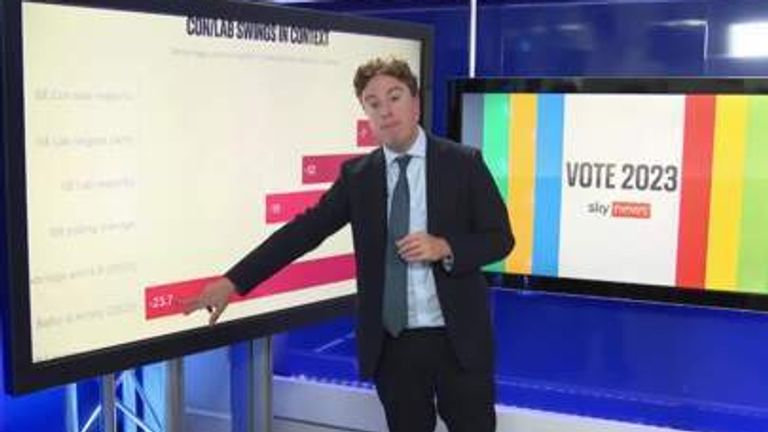Holding on to Uxbridge and South Ruislip on Friday morning at least gave Rishi Sunak a life jacket to cling to in the by-election wash-up – a 2-1 defeat rather than a 3-0.
Popping up in Uxbridge, the prime minister used his wafer-thin victory (winning Boris Johnson’s old seat by just 495 votes) to insist that the outcome of the next general election was “not a done deal”.
But these results won’t give the Conservatives much confidence that they are on course to avoid going under at the next general election.
Politics Live: Is Keir Starmer on course to be the next PM?
Be it the Labour win in Selby and Ainsty, or the Liberal Democrat triumph in Somerton and Frome, the common thread in both these results are two opposition parties performing at levels matching by-election results in the dying days of the 1992-1997 Conservative government which came crashing down with the Tony Blair landslide.
That was an epochal election – and these results only reinforce the idea that the next one is likely to be too.
For Labour, the win in Selby is historic.
It was the biggest ever Tory majority – more than 20,000 – overturned by Labour in a by-election, and the second biggest swing – 23.7 per cent – away from the Tories to Labour since the Second World War, beaten only by Tony Blair in Dudley West in 1994.
Sir Keir Starmer finds himself in the sort of territory – in the polls and in this election – that was claimed by Mr Blair ahead of this big victory.
He needs a swing of 12 per cent – Blair got a record 10.7 per cent swing in 1997 – to gain 124 seats and win a majority.
Selby is the Conservatives’ 249th most vulnerable seat and losing in a rural Tory stronghold like this will make Tories with majorities of 15,000 feel very unsure.
For the Lib Dems, winning Somerton and Frome is their fourth consecutive by-election win this parliament, a feat not achieved since the days of Paddy Ashdown in 1992-1997.
It has given the Lib Dems belief that they can rebuild in the West Country, having been nearly wiped out by the Tories after five years of coalition government in 2015.
Somerton was the Lib Dems’ 53rd most marginal seat in the 2019 general election, so they have plenty to go for into next year.
Sunak sees a way to destabilise Labour
For the Conservatives though, there is a glimmer of something in all of this.
One person in Mr Sunak’s top team told me that Uxbridge had given the prime minister hope that if he can pin Labour on issues of substance, there is an opportunity to create dividing lines between Labour and the Tories that gives Mr Sunak a chance.
“We’ll have a sharper political take next term, force Starmer out of the shadows and stop him being a grey man. In September you’ll be hearing more about wedge issues,” they said.
I’m told that Mr Sunak is not much of a “culture wars” PM, but will fight on issues where he believes he can disrupt Mr Starmer’s policies and put himself on the right side of voters.
Already the Tories are talking about Labour’s now diluted £28bn-a-year investment into green energy in order to deliver green power by 2030 as an obvious area to hit.
For Labour, the narrative would have of course been cleaner if Mr Sunak had lost all three by-elections.
But the results in some ways reinforce the patterns and political strategy we have seen since the Truss debacle and emergence of Sunak as PM – the Conservatives are miles behind in the polls, local and by-elections reinforce a likely change of power in the next general election and Labour can’t take anything for granted, with the top team borrowing Blair’s “warriors against complacency” in their approach from now to election day.
“The result might not be clean, but it is crystal clear,” says one senior Labour figure. “Selby shows how far we’ve come and the potential of what we can do.
“To win the trust of so many voters who have never voted for us in a strong Tory part of the country is remarkable.”
But it’s true too from Uxbridge that support can’t be taken for granted, and Labour can be de-stabilised when a campaign cuts through.
“Uxbridge shows that support from voters is conditional and if we don’t act in their interests they will not support us,” says the senior Labour figure. “We must put the voters first, our priorities must be the public’s.”
Sunak and Starmer will both double down
From sticking to the two-child cap on child benefit, to only making spending commitments that have been costed via other tax rises (such as ending non-dom status and charging VAT on private school fees), Labour is determined not to open up any flank on economic ill-discipline.
This, I’m told, is all about focus and convincing ‘small c’ Conservatives to come into the Labour column at the general election.
There will be no radicalism from Starmer that costs money.
Instead, he will try to signal “change” through policies that don’t cost money – reforming the planning system and devolution (although I think the Tories might target the green investment plan as an exposed flank).
The overall swing away from the Tories over these three by-elections of 21 per cent is obviously disastrous for Mr Sunak.
But he knows too his party won’t switch him out now – even those who don’t like or support him accept the Conservatives can’t change PM again – and so he will double down on his five pledges while sharpening up attack lines on his opponent.
This trio of by-elections reinforce that it is Mr Starmer with the most to lose and Mr Sunak with everything to win in the race for No 10.
We could be up to 18 months away from the short election campaign, but these leaders will be firing the starting guns on the long campaign in earnest in September.
General elections are always bloody and epochal ones are even more vicious. Strap in.


